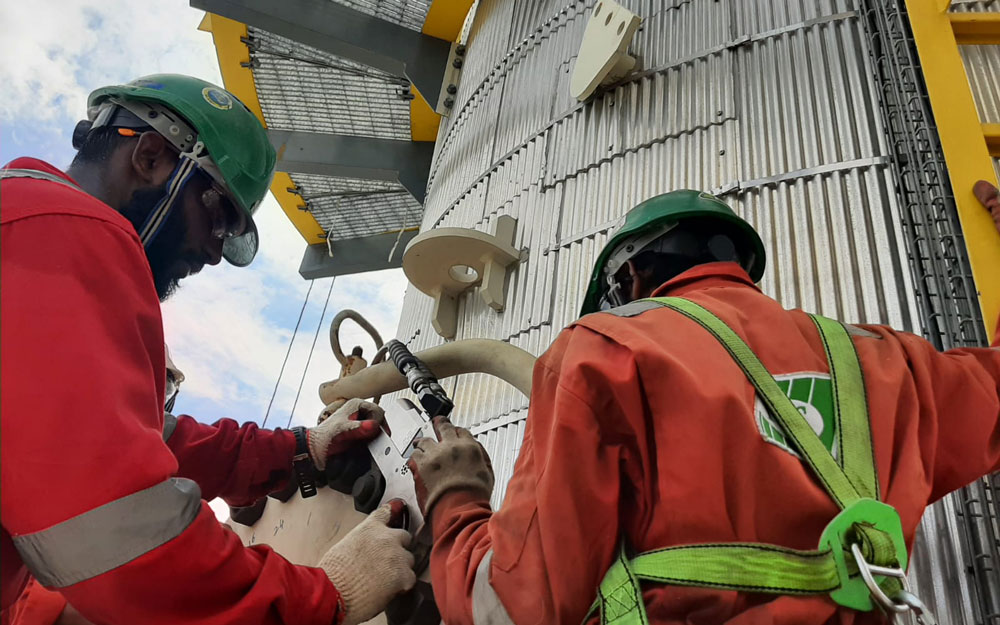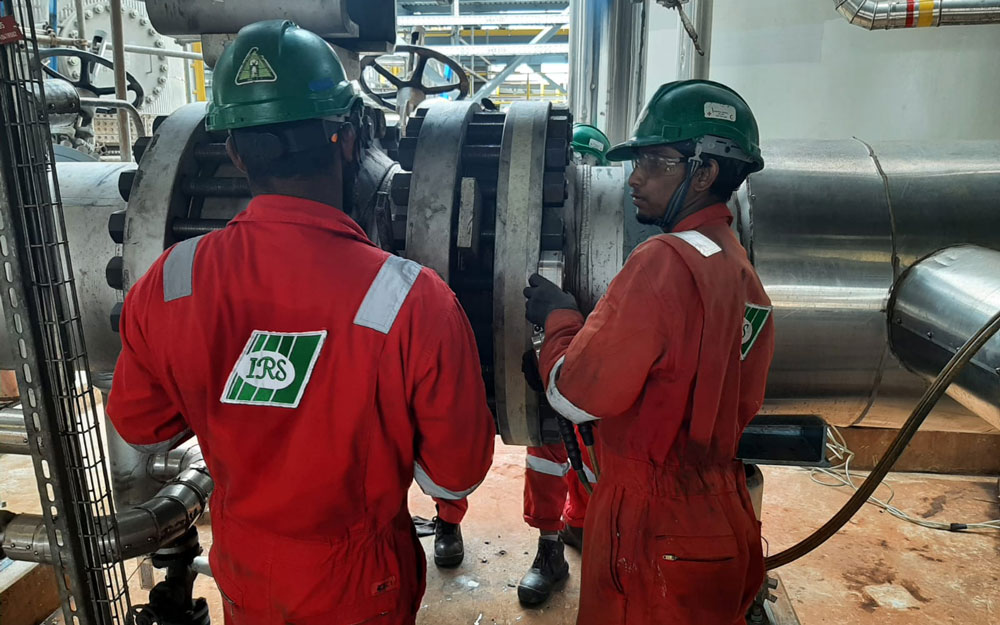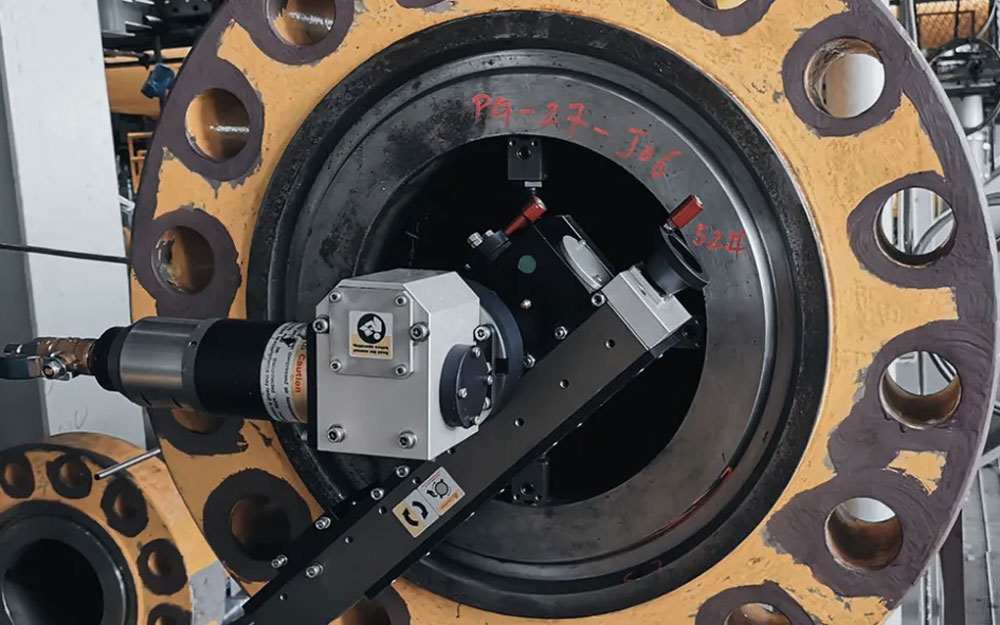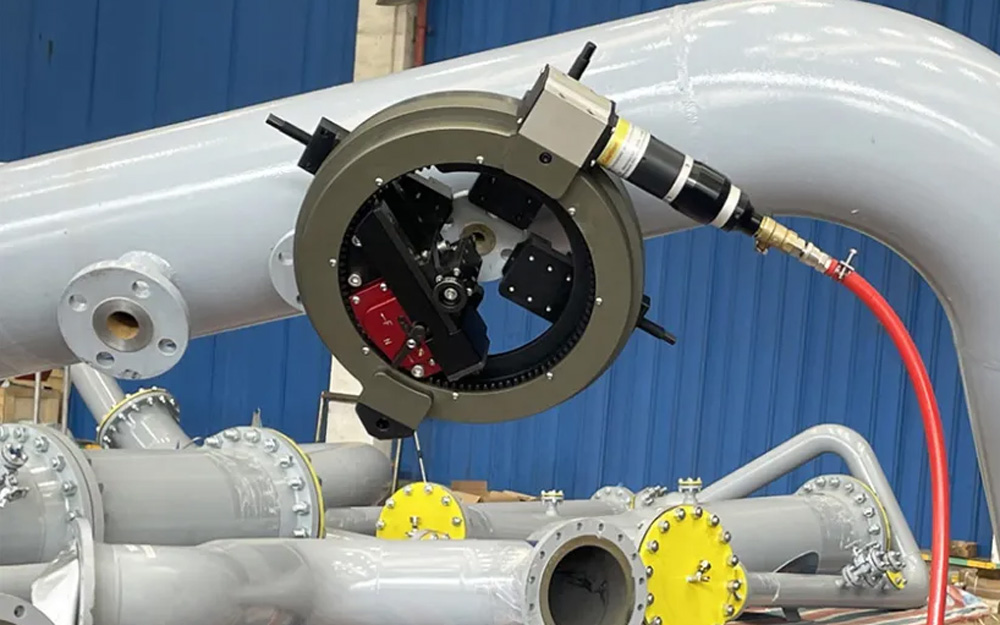
Flange Management Services
Flange Management Services are recognized services for leak prevention in bolted flange assemblies. Flange management provides assurance to proper assembly and tightening of bolted joints during turnaround, shutdown, daily maintenance, construction process or any intervention that follows.
Flanges are mechanical devices used to connect pipes and valves together securely. They provide a leak-proof joint, preventing any fluid or gas from escaping the system. Flanges are particularly vital in the oil and gas industry, where the transportation of hazardous substances requires utmost safety.
Flange leakage is a prevalent issue in the industry. Even a small leak can lead to environmental contamination, health risks, and production delays. Identifying and addressing potential leaks are crucial for maintaining safety and protecting the environment. Flanges exposed to harsh conditions, such as saltwater, corrosive substance and environments, are prone to corrosion and rust. A comprehensive flange management strategy must include measures to mitigate and prevent corrosion to ensure equipment longevity.
IRS offers comprehensive flange management services, encompassing specialized bolting, on-site precision machining, and thorough QA/QC verification. This ensures a cost-effective, flexible, and dependable solution for any integrity application. Our adept field personnel, fully certified to industry training standards such as ASME PCC-1, operate with cutting-edge, adaptable equipment adhering to the most stringent safety protocols
Flange bolt torquing refers to the process of tightening bolts that are used to secure flanges together in piping systems or other mechanical assemblies. In flange bolt torquing, the bolts are tightened to a specific torque value using the mechanical or hydraulic torque wrench. The torque value is typically determined based on factors such as the size and material of the bolts, industry standards or specifications.
Proper torquing of flange bolts is crucial to ensure a leak-tight seal between the flanges, preventing any fluid or gas from escaping the system. Under-tightening can lead to leaks, while over-tightening can result in damage to the flanges or bolts. Therefore, following the recommended torquing procedure is essential for the reliable and safe operation of piping systems and other assemblies utilizing flanges.
Bolt tensioning is a method used to achieve and control the amount of tension or preload in a bolted joint. This technique involves applying a specific force to stretch the bolt, which in turn creates tension along its length. By controlling this tension, bolt tensioning aims to ensure that the joint is securely fastened and can withstand the forces and stresses it will encounter during operation.
The process of bolt tensioning typically involves using specialized equipment such as hydraulic or pneumatic tensioners. These tools apply a precise amount of force to the bolt, stretching it to the desired length and generating the required tension. Immediately after the hydraulic pressure (load) is released, the bolt tension is retained because the threaded fastener is prevented from returning to its original length by the tightened nut. Hydraulic stud bolt tensioners can be connected together in multiples to ensure a uniform “pull down” or tension is distributed across all bolts simultaneously. This is especially vital in applications utilizing sealing gaskets, where maintaining consistent, leak-free connections is essential. Additionally, bolt tensioning can be particularly useful in situations where access to the bolt head is limited or where large or high-strength bolts are being used.
Flange facing involves machining the mating surfaces of flanges to produce a tight, leak-proof sealed joint.
Flange facing on-site service refers to the process of machining or refinishing the mating surfaces of flanges in industrial settings, such as refineries, chemical plants, power plants, and other facilities where pipelines are used. Flanges are used to connect pipes, valves, and other equipment together in a secure and leak-proof manner.
Over time, flange surfaces can become damaged, eroded, corroded, or warped due to various factors such as exposure to high temperatures, pressure, High fluid flows, or chemical substances. This can result in leaks or inefficient sealing, leading to operational problems and safety hazards
On-site flange facing services offer several advantages over traditional off-site machining or replacement of flanges. These include reduced downtime, cost savings, and the ability to address issues without dismantling large components or shutting down entire systems. Additionally, on-site services can be tailored to suit specific project requirements and can be performed in challenging environments where transportation of large equipment may be impractical or costly.
Key Benefits:
- Eliminate flange replacement, reducing costs
- Minimize downtime and reduce costs
- Fast and easy machine setup
- Simple operation for all types of flanges
- Solid performance
Overall, flange face machining is crucial for ensuring the integrity and reliability of piping systems, particularly in industries such as oil and gas, petrochemical, power generation, and industrial processing, where leakage can lead to safety hazards, environmental damage, and costly downtime.





